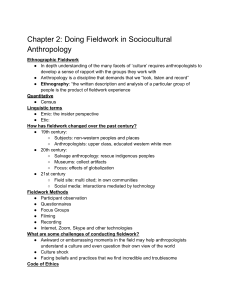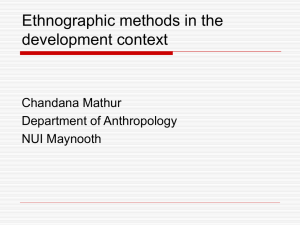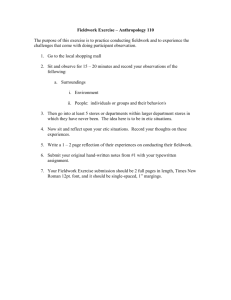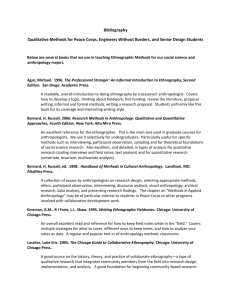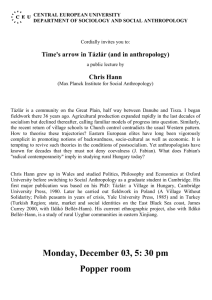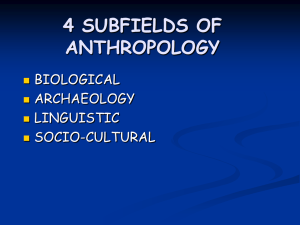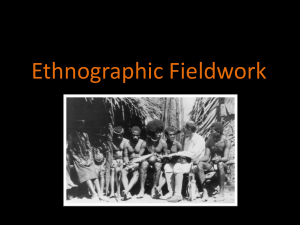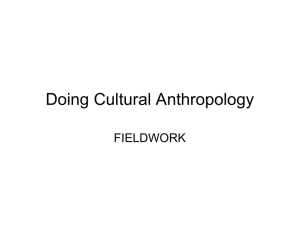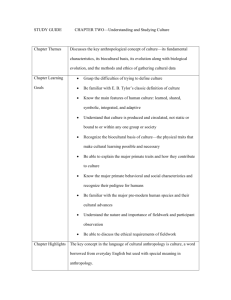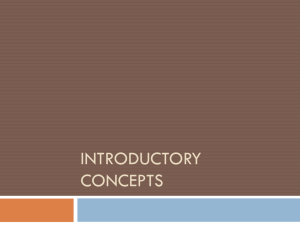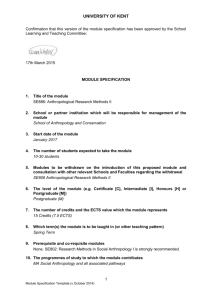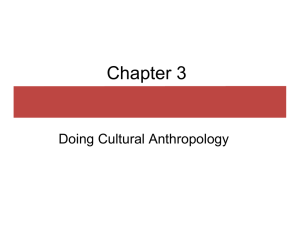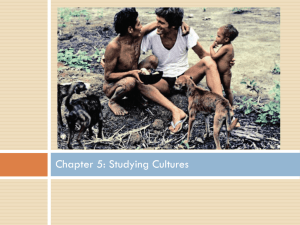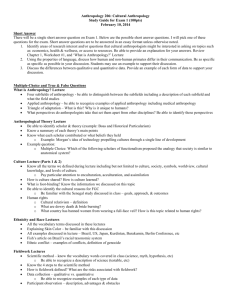CHAPTER - Cengage Learning
advertisement
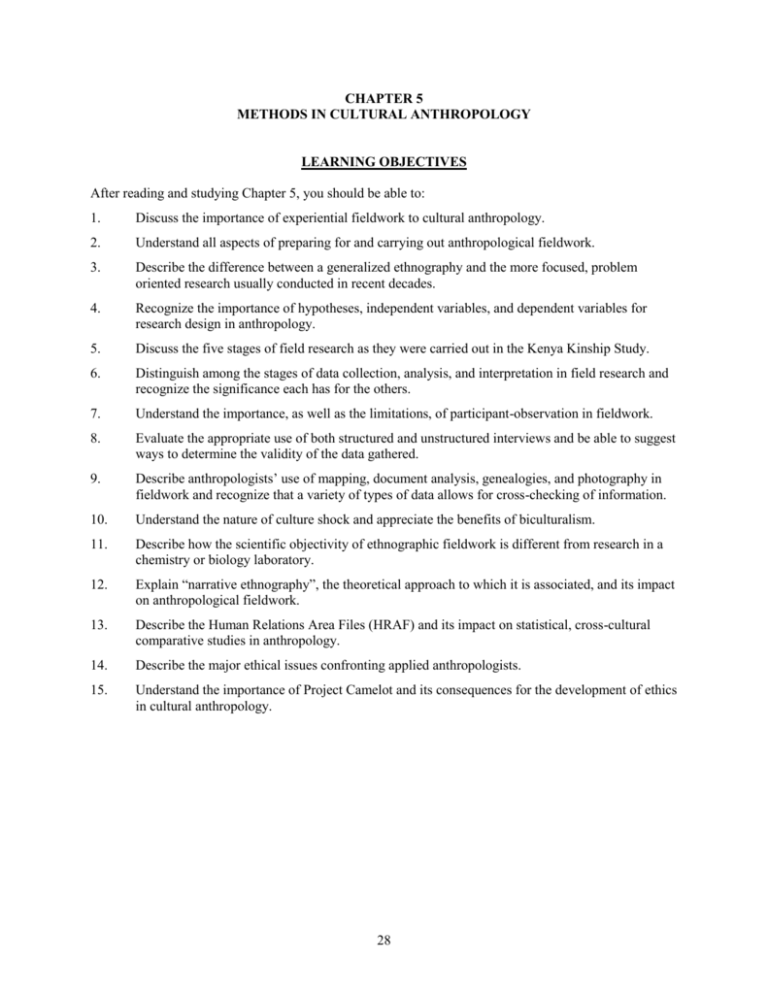
CHAPTER 5 METHODS IN CULTURAL ANTHROPOLOGY LEARNING OBJECTIVES After reading and studying Chapter 5, you should be able to: 1. Discuss the importance of experiential fieldwork to cultural anthropology. 2. Understand all aspects of preparing for and carrying out anthropological fieldwork. 3. Describe the difference between a generalized ethnography and the more focused, problem oriented research usually conducted in recent decades. 4. Recognize the importance of hypotheses, independent variables, and dependent variables for research design in anthropology. 5. Discuss the five stages of field research as they were carried out in the Kenya Kinship Study. 6. Distinguish among the stages of data collection, analysis, and interpretation in field research and recognize the significance each has for the others. 7. Understand the importance, as well as the limitations, of participant-observation in fieldwork. 8. Evaluate the appropriate use of both structured and unstructured interviews and be able to suggest ways to determine the validity of the data gathered. 9. Describe anthropologists’ use of mapping, document analysis, genealogies, and photography in fieldwork and recognize that a variety of types of data allows for cross-checking of information. 10. Understand the nature of culture shock and appreciate the benefits of biculturalism. 11. Describe how the scientific objectivity of ethnographic fieldwork is different from research in a chemistry or biology laboratory. 12. Explain “narrative ethnography”, the theoretical approach to which it is associated, and its impact on anthropological fieldwork. 13. Describe the Human Relations Area Files (HRAF) and its impact on statistical, cross-cultural comparative studies in anthropology. 14. Describe the major ethical issues confronting applied anthropologists. 15. Understand the importance of Project Camelot and its consequences for the development of ethics in cultural anthropology. 28
